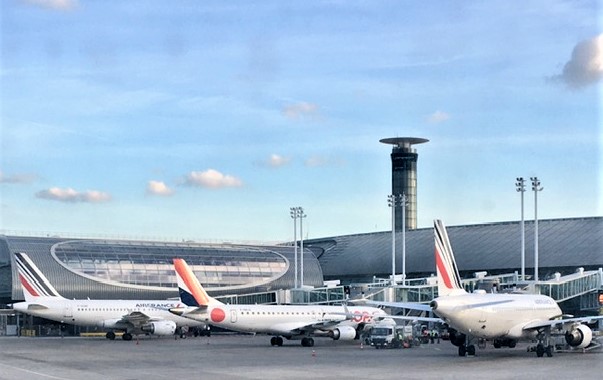Source: Airport Carbon Accreditation
On the occasion of the 4th annual conference for French and Francophone airports organised by Union des Aéroports Français & Francophones Associés (UAF & FA), ACI is today highlighting the French airport industry’s decarbonisation achievements within the global carbon standard for airports, Airport Carbon Accreditation.
France – a leader in airport climate action
On the global stage, and out of 86 countries represented in Airport Carbon Accreditation, France has gathered by far the biggest community of climate smart airports. The 63 French airports currently actively addressing their carbon emissions in Airport Carbon Accreditation constitute almost 30% of the total number of accredited airports in Europe (219), and 15% globally (425). These numbers speak volumes of the determination of the French airport community to rid their operations of negative externalities for the climate.
This climate drive is also reflected in the accreditation levels currently held by French airports. A clear majority of them, 46, have been certified for achieving tangible CO2reductions, from Level 2 up to the highest levels of the programme. French airports keep on raising the bar for deeper business transformation and reaching more ambitious levels of the programme. Since the beginning of Q4 2022, 4 airports upgraded to Level 21, 6 airports upgraded to Level 32, whilst the highest levels, Level 4 and 4+, were achieved by Marseille Provence Airport and Lyon Saint-Exupéry Airport respectively.
The two busiest networks of airports in France are at the highest levels of the programme – Groupe ADP operating Paris-CDG and Paris-Orly airports at Level 4 ‘Transformation’ and Côte d’Azur Airports operating Nice and Cannes airports, having achieved across-the-board Level 4+ ‘Transition’ accreditation. In addition, the homegrown French airport operator turned global leader – VINCI Airports has achieved Airport Carbon Accreditation for every airport within its network, as part of its AirPact environmental strategy.
The global pandemic didn’t manage to break the momentum for airport climate action in France, in spite of the unprecedented shock it constituted for the aviation industry. Since 1 March 2020, when COVID-19 was officially declared a pandemic, 22 French airports joined the programme for the first time and 25 achieved accreditation at a higher level than previously.
Carbon management made EASEE
In 2020, UAF & FA set up a new initiative in partnership with Eco CO2 3 aimed at removing hurdles for smaller regional airports in France to get on board with climate action. The partners recognised that comprehensive carbon management at airports required significant resources, both financial and staffing, often limiting smaller airports’ ability to act upon their commitment to decarbonisation. The new project, called EASEE (Engagements des Aéroports pour la Sobriété Energétique et l’Environnement), provides technical support, tailor-made guidance and financing through a public mechanism (“Certificats d’économies d’énergie”) – thus directly empowering airports to become accredited within Airport Carbon Accreditation, no matter their size or financial capabilities.
Since its inception, EASEE has supported 36 airports in France to get certified under Airport Carbon Accreditation, with an additional 374 airports expected to become certified in the coming months. This is set to bring the total number of French airports participating in Airport Carbon Accreditation to 89. EASEE remains the only such initiative on the global scale accompanying airports on their journey to carbon-free operations and improved energy and environmental performance. It has been warmly welcomed by ACI EUROPE, the owner of Airport Carbon Accreditation and a long-standing partner for UAF & FA in their environmental endeavours.
Olivier Jankovec, ACI EUROPE Director General said: “The sheer scale of French airports’ engagement in the ongoing transformation of our industry is tremendous. 63 airports (and counting!) are now reducing CO2 and with many working with their airport communities to also trigger third party reductions along the wider aviation eco-system. I would like to congratulate the teams hard at work to achieve emissions reductions whilst delivering the much needed connectivity to French cities and regions.”
He added: “UAF & FA with their unique initiative tackling all obstacles on the way for airports to engage in concrete climate action are setting an example for others to follow. I am grateful for this cooperation and its potential to unlock faster decarbonisation.”

